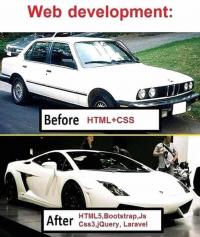Most of us should already be aware that Google has updated their algorithm. The new algorithm is called BERT (Bidirectional Encoder Representations from Transformers) and has made at least a couple of modern-day SEO experts scratching their heads trying to figure out what it means.
The good news is that there have been no major changes enough to make SEO experts change their strategies drastically. This means that all of the linking and keyword researching techniques remain the same and will do so in the foreseeable future.
What has changed is probably the salaries of copywriters, as Google’s BERT will immediately start prioritizing texts that have much more quality rather than quantity.
In order to see this, let’s compare the updated BERT to the previous algorithm and try to draw some lines in the changes.
Bidirectional comprehension
In the past (a week ago), Google’s algorithm would try its best to comprehend context to the search queries. This means that it would read the query twice. Once from left to right, and another time from left to right.
This helped it comprehend what the user was asking and then search for a similar sentence, the sequence of words or just specific words on the pages that have been indexed.
This was mostly accurate as there were not too many times where Googling something would have you search for hours upon hours. Unless you’re a beginner software developer that doesn’t know how to Google that is (Yes, that’s actually a skill).
The BERT algorithm takes a completely different approach. Well, not completely different, but still different.
Bidirectional means that the sequence of words in the query can be comprehended from both sides simultaneously. So, for example, if the previous algorithm could do only one direction at a time, BERT is able to correlate every word in the query to each other and calculate the context.
Through this calculation, it will try to find identical or similar sequencing of words on indexed pages and display only the most relevant results.
Now, if you’re not deliberately writing lies on a specific topic on your website or blog, this update should not affect your rankings too much. Unless of course the article was written long ago and the content is now redundant.
The best way to guarantee 100% “compliance” with BERT, it’s best to hire a copywriter and have them check the quality of the article. Anything that can be improved without damaging keyword spacing would be welcome. If not, then the content shouldn’t be touched.
Comprehending words with multiple meanings
Another issue with the previous algorithm that BERT has improved upon is the comprehension of words with different meanings. Let’s highlight it with an example.
Imagine that you are doing some renovations in your house and ran out of nails. Considering that you don’t know where the nearest tool shop is, you’re very likely to Google it and find results that are nearest to your house.
But, googling something like “quality nails in Dallas TX” would confuse the algorithm a little bit. It will either mix the results of a salon where you can get your nails done and a tools shop where you can buy nails for construction.
Whenever queries like this are asked to Google’s search engine in the future, it will consider only the most relevant results that it can display to you. Considering that you will be logged in with your Google account, it can take your age, sex, occupation and other variables before displaying results.
If not then, it will derive the results from the most popular queries with similar keywords. In this case, sharing some personal information could save you time in the long run of adding more keywords to get more relevant results.
What didn’t change
One major aspect that didn’t change in the algorithm is getting yourself at the top of Google’s 1st page.
It’s still mostly reliant on things such as backlinks, keyword density, website authority, best practice website layout, and speed.
As already mentioned, the only thing you may be forced to change is the way you write your content to better suit popular Google queries.
